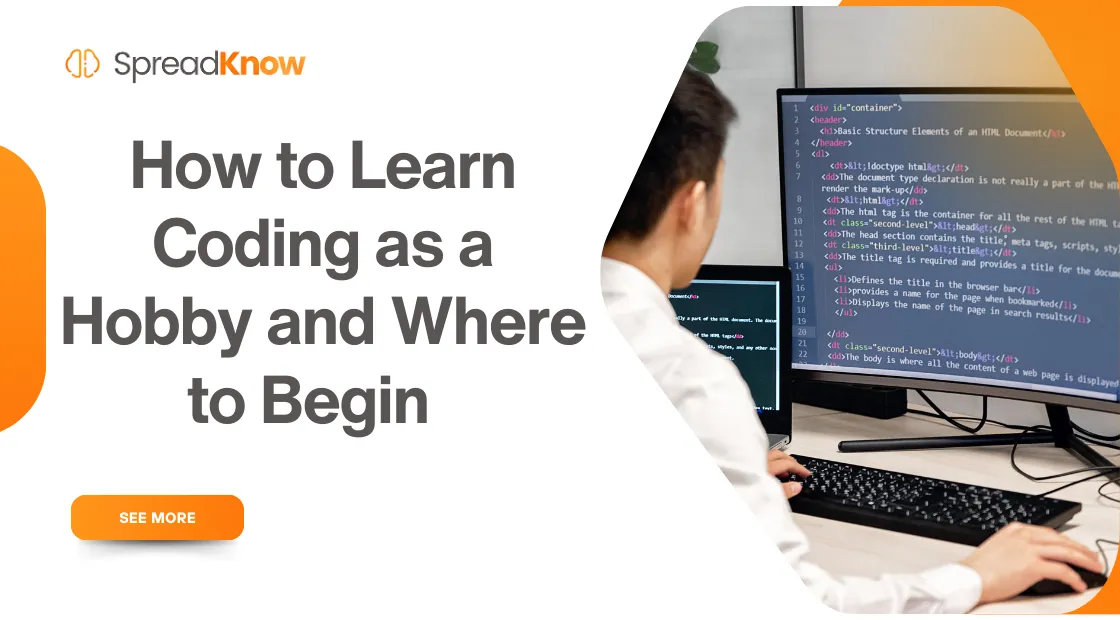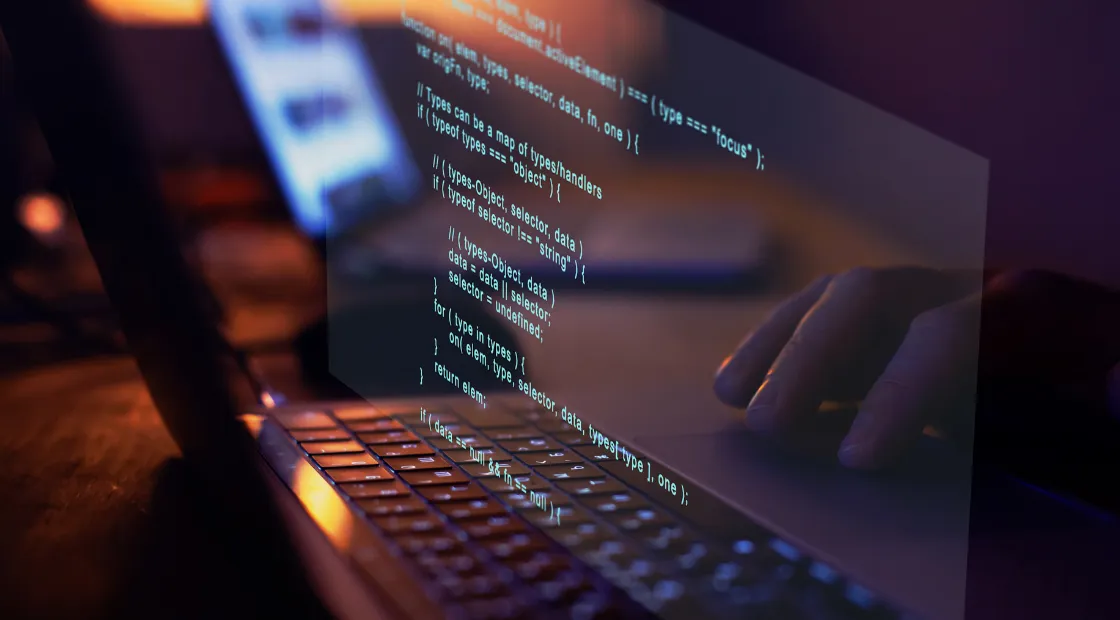How to Learn Coding as a Hobby and Where to Begin

To learn coding as a hobby is to embark on a creative, intellectual adventure that sharpens your mind and opens doors to endless possibilities.
Anúncios
In 2025, coding is no longer just a professional skill—it’s a gateway to personal growth, problem-solving, and even artistic expression.
Whether you’re building apps, automating tasks, or crafting games, coding as a hobby offers a unique blend of challenge and reward.
But where do you begin?
This guide will walk you through the process with actionable steps, fresh perspectives, and practical tools, ensuring you start strong and stay engaged.
Anúncios
Let’s dive into why coding is worth your time and how to make it a fulfilling pursuit.
As you embark on this journey, remember that coding is a lifelong skill that can adapt and grow with you.
The more you practice, the more you’ll discover new interests and potential applications for your coding knowledge.
Why Coding as a Hobby Matters in 2025
Coding isn’t just typing lines of code—it’s like learning a new language that lets you communicate with machines and shape the digital world.
In a tech-driven era, it’s a skill that empowers you to create, innovate, and understand the systems shaping our lives.
A 2023 Stack Overflow survey found that 60% of developers code for fun outside work, proving that to learn coding as a hobby resonates with millions.
It’s not about becoming a tech titan; it’s about curiosity and control.
From designing a personal website to scripting a bot for your favorite game, coding lets you bring ideas to life.
But why now?
Technology evolves fast, and 2025 is a pivotal year.
AI tools, low-code platforms, and vibrant online communities make starting easier than ever.
Yet, the mental discipline coding builds—logic, patience, and creativity—remains timeless.
Imagine coding as a gym for your brain: each project strengthens your problem-solving muscles.
Ready to flex them?
As you dive into coding, you'll find that the skills you acquire can enhance your career prospects and personal projects alike.
The ability to understand and manipulate technology is becoming increasingly valuable in various fields.
Step 1: Define Your Coding Goals and Interests
Before writing your first line of code, ask yourself: What sparks my curiosity?
To learn coding as a hobby, clarity on your “why” is crucial.
Are you drawn to web development, game design, or data analysis?
Each path demands different languages and tools.
For example, if you love visuals, front-end web development with HTML, CSS, and JavaScript might excite you.
If puzzles are your thing, Python’s clean syntax is great for scripting or data projects.
Here’s an original example: Meet Sarah, a 30-year-old teacher who wanted to create an interactive quiz app for her students.
She started with JavaScript, focusing on small projects to gamify learning.
Her clear goal—enhancing her classroom—kept her motivated.
Contrast this with vague ambitions like “I want to code.”
Narrowing your focus prevents overwhelm and fuels progress.
Table 1: Coding Goals and Recommended Languages
| Goal | Recommended Language | Why It Fits |
|---|---|---|
| Web Development | HTML, CSS, JavaScript | Builds interactive, visually appealing websites. |
| Game Development | C# (Unity), Lua | Ideal for creating 2D/3D games with accessible frameworks. |
| Data Analysis | Python, R | Simplifies data manipulation and visualization for insights. |
| Automation/Scripting | Python, Bash | Streamlines repetitive tasks like file organization or web scraping. |
Pick a goal that excites you.
It’s the spark that keeps you coding when challenges arise.
Setting specific goals can significantly enhance your learning experience.
You’ll have a clear direction and milestones to celebrate along the way.
Step 2: Choose the Right Tools and Environment
The tools you use can make or break your early coding experience.
To learn coding as a hobby, you don’t need a fancy setup—just a computer and the right software.
Start with a code editor like Visual Studio Code, which is free, versatile, and beginner-friendly.
Pair it with online platforms like Replit or CodePen for instant coding without complex installations.
For example, consider Alex, a graphic designer who wanted to build a portfolio website.
He used CodePen to experiment with CSS animations, tweaking colors and layouts in real-time.
This hands-on approach made learning fun and immediate.
Avoid the trap of over-researching tools; pick one and start experimenting.
Set up a distraction-free environment.
A quiet corner, a good playlist, and a clear desk can boost focus.
In 2025, cloud-based coding platforms are a game-changer, letting you code from any device.
Tools like GitHub Codespaces offer pre-configured environments, so you can jump straight into projects.
As you explore different tools, consider joining forums or communities where you can share experiences and tips.
Learning from others can help you discover new tools and techniques that enhance your coding journey.
+ How to Improve Your Decision-Making Skills Under Pressure
Step 3: Start with the Right Language
Choosing a programming language is like picking a paintbrush—each serves a purpose, and none is “best.”
For hobbyists, Python is a top choice due to its readability and versatility.
Want to build a simple game? Try Pygame.
Curious about data? Pandas has you covered.
Alternatively, JavaScript is ideal for web-based projects, powering interactive sites like those you use daily.
Don’t fall into the analysis-paralysis trap.
Many beginners waste time debating languages.
Pick one aligned with your goal and dive in.
You can always learn another later.
Python and JavaScript dominate hobbyist communities in 2025 for their accessibility and vast libraries.

Table 2: Beginner-Friendly Languages and Use Cases
| Language | Strengths | Best For | Learning Curve |
|---|---|---|---|
| Python | Simple syntax, vast libraries | Automation, data, AI, small games | Easy |
| JavaScript | Web-focused, interactive | Websites, web apps | Moderate |
| Scratch | Visual, block-based coding | Young learners, simple games | Very Easy |
| Lua | Lightweight, great for scripting | Game development (e.g., Roblox) | Easy |
Choosing the right language can set the tone for your learning experience.
It’s essential to align your choice with your interests and goals for maximum enjoyment and engagement.
Step 4: Leverage Online Resources and Communities
The internet is your coding playground.
To learn coding as a hobby, tap into free resources tailored for beginners.
Platforms like freeCodeCamp offer structured tutorials, while Codecademy’s interactive lessons build skills step-by-step.
YouTube channels like The Coding Train bring creativity to learning with quirky, engaging projects.
Join communities to stay motivated.
Reddit’s r/learnprogramming and Discord servers like CodeNewbie connect you with hobbyists worldwide.
Share your projects, ask questions, and learn from others’ mistakes.
In 2025, X posts from coders often highlight trending tools or challenges—follow hashtags like #CodeNewbie for inspiration.
Pro tip: Avoid tutorial overload.
Complete one course or project before jumping to another.
Consistency trumps quantity.
For an extensive list of online coding resources, visit W3Schools.
This site provides tutorials and references for various programming languages and web development topics.
Step 5: Build Projects to Cement Skills
Coding is a hands-on craft.
Reading books or watching videos alone won’t make you a coder—building does.
To learn coding as a hobby, start with small, achievable projects.
Create a to-do list app, a personal blog, or a simple text-based game.
Each project reinforces concepts and boosts confidence.
For instance, Sarah (our teacher) built a quiz app that randomized questions using JavaScript arrays.
Alex, the designer, coded a CSS grid-based portfolio.
Both started small, iterating as they learned.
Projects make abstract concepts tangible, turning “I’m stuck” into “I did it!”
Use GitHub to store and showcase your work.
It’s a digital portfolio that grows with you.
Plus, version control teaches you to track changes—a skill even hobbyists appreciate.
As you build projects, consider sharing your progress on social media or community forums.
This not only showcases your work but also invites feedback and encouragement from others.
Step 6: Embrace Challenges and Debugging
Coding isn’t all smooth sailing.
Bugs and errors are part of the journey.
To learn coding as a hobby, embrace debugging as a puzzle, not a punishment.
When your code fails, break it down: check syntax, test small sections, and use tools like Chrome DevTools for web projects or Python’s debugger.
Communities and AI tools can help.
In 2025, platforms like Grok (yes, like me!) offer real-time coding assistance, explaining errors in plain English.
Don’t fear mistakes—they’re your best teacher.
Every bug fixed is a lesson learned.
Embracing challenges will help you develop resilience, a crucial trait for any coder.
Learning to troubleshoot effectively can also enhance your problem-solving skills in other areas of life.

Step 7: Stay Consistent and Have Fun
Consistency is the secret sauce.
To learn coding as a hobby, dedicate small, regular chunks of time—say, 30 minutes daily.
Apps like Habitica gamify your progress, turning coding into a quest.
Celebrate wins, like your first working program, to stay motivated.
Keep it fun.
Experiment with creative projects, like coding a chatbot that roasts your favorite TV show or a visualization of your Spotify playlist data.
The joy of creation fuels long-term commitment.
Finding joy in your projects can lead to unexpected discoveries and innovations.
The more you enjoy coding, the more likely you are to stick with it and continue learning.
++ How Playing a Musical Instrument Can Boost Your Brainpower
Overcoming Common Pitfalls
New coders often stumble.
Avoid these traps:
- Perfectionism: Your first code won’t be flawless. Ship it and improve later.
- Comparison: Everyone progresses differently. Focus on your journey.
- Overwhelm: Break projects into tiny tasks. One function at a time.
Recognizing these pitfalls is the first step in overcoming them.
By being aware of common challenges, you can create strategies to navigate them effectively.
The Bigger Picture: Why Keep Going?
To learn coding as a hobby is to join a global community of creators.
It’s not just about code—it’s about problem-solving, resilience, and imagination.
In 2025, hobbyist coders contribute to open-source projects, build indie games, and even launch side hustles.
The skills you gain spill over into other areas, from logical thinking to creative expression.
Think of coding like gardening: plant small seeds (projects), nurture them with practice, and watch your skills bloom.
Where will your coding journey take you?
As you continue to grow your skills, consider the impact you can have on others.
Sharing your knowledge and experiences can inspire fellow hobbyists and foster a supportive community.
